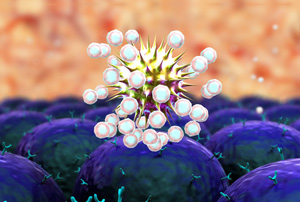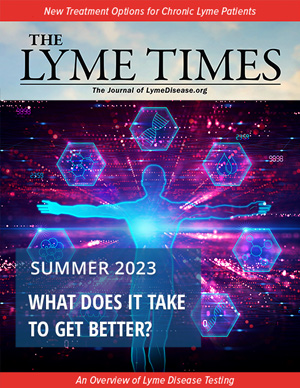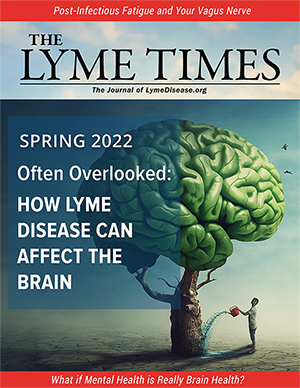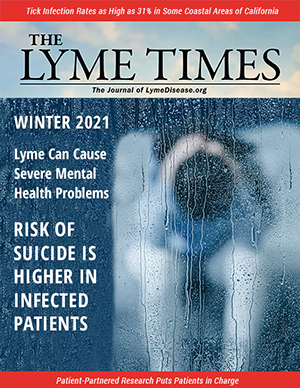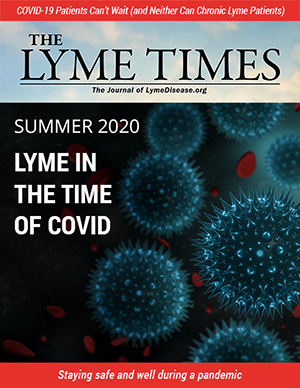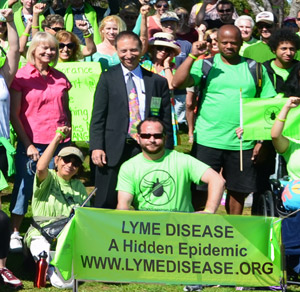- Home
- Find A Physician
- FIND A PHYSICIAN
- LymeTimes
- Current Issue
- Archives
- FEATURED LYMEDISEASE.ORG ISSUES
- Resources
- LYME LITERATE PHYSICIAN VIDEOS
- Physicians
- Members
- About Us
- Resources
T wo years ago, we discovered that my daughter was allergic to microcrystalline cellulose (MCC)–one of the most common fillers in medications and supplements. Just two months prior to that discovery, she was diagnosed with mast cell activation syndrome (MCAS).
This followed a lengthy illness and treatment for Lyme, Ehrlichia, and Bartonella. Despite treatment, her health continued to decline precipitously. It was the most terrifying time of her illness. Come to find out, reactions to medications are very common in patients with MCAS. However, according to Dr. Lawrence Afrin, a specialist in hematology and mast cell disease, it’s not usually the medications themselves that are the problem. It is more likely that MCAS patients will react to one or more of the “inactive” ingredients—the fillers, binders, dyes, or preservatives in their medications, known as excipients.
When Is a Herx Not a Herx?
Often I hear Lyme patients say they are having a Herxheimer reaction when they experience a negative reaction to a medication. A Jarisch-Herxheimer reaction is a very distinctive response that happens shortly after starting antibiotic treatment for a spirochetal infection like syphilis, Lyme disease, or tick-borne relapsing fever.
I wrote extensively on how to distinguish the difference between an adverse drug reaction and a Herxheimer reaction. The easiest tip-off that the adverse reaction is likely to be to the excipients is if you initially feel better after starting a new medication and then, around day three, begin to have MCAS symptoms.
What Are Excipients?
Every ingredient in a medication that isn’t the active drug itself is labeled as an excipient. Ideally, excipients are inert and have no pharmacological effect. But there have been growing reports of adverse reactions to these extra ingredients.
Excipients can range anywhere from simple organic ingredients (like corn starch or sugar) to more complex substances with potential for toxicity at higher doses or after prolonged use (like dextran or polyethylene glycol).
Here’s how we discovered my daughter’s allergy to MCC.
When You Know Better
In the fall of 2016, my daughter had developed sensitivities to multiple chemicals and could eat only two foods without having an allergic reaction. (Read about that here.) Thankfully, one of her doctors thought to question what fillers were being used in one of her medications—ketotifen, a mast cell stabilizer. I called the pharmacy and was told the prescription contained two ingredients: ketotifen and lactose.
Knowing she’d been lactose-intolerant for years, I felt angry and relieved all at once. I thought, “Eureka! This is it!”
But Just Knowing Isn’t Enough
Later that day, her doctor called in the prescription for ketotifen with the request to use ascorbic acid (vitamin C) as the filler.
….Join or login below to continue reading.
You must be a LymeDisease.org member to access this content.






